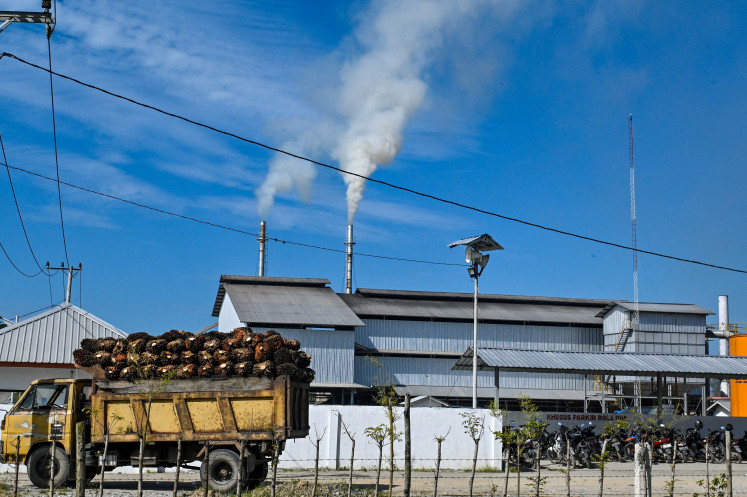Popular Reads
Top Results
Can't find what you're looking for?
View all search resultsPopular Reads
Top Results
Can't find what you're looking for?
View all search resultsRI comes under spotlight at UNHRC
Despite claims made by Foreign Minister Marty Natalegawa that Indonesia’s human rights report received a “warm welcome” at the United Nations Human Rights Council (UNHRC) summit in Geneva, delegates say they are concerned about the prosecution of religious minorities
Change text size
Gift Premium Articles
to Anyone
D
espite claims made by Foreign Minister Marty Natalegawa that Indonesia’s human rights report received a “warm welcome” at the United Nations Human Rights Council (UNHRC) summit in Geneva, delegates say they are concerned about the prosecution of religious minorities.
A series of recommendations proposed by nations participating in the UNHRC’s Universal Periodic Review (UPR) discussed the persecution of minority groups in Indonesia.
“The Indonesian government must strengthen efforts to ensure that any assaults against religious minorities are properly investigated and that those responsible are brought to justice,” the UPR’s review committee said in its recommendations.
A member of the Human Rights Working Group (HRWG), Choirul Anam, said that the statement amounted to a rebuke of the nation’s human rights record.
“The fact that such a recommendation was placed at the top of the list reflects the mounting concerns about the poor protection of religious freedom in Indonesia,” Chairul said on Thursday.
A video on the UN’s Human Rights Office website of Indonesia’s review session shows representatives of several countries, including Norway, Slovenia, and the Netherlands, telling the Indonesian government to take action against those who attacked religious minorities.
Delegations from 74 countries, 24 members of the UN’s human rights body, and 47 monitoring parties attended the session.
The video also showed a delegate from Slovenia, saying, “The fact is that the vast majority of human rights violations committed by the police and security forces continue to go unpunished. We recommend the government ensure that all cases of human rights violations are impartially investigated and prosecuted in proportion with the crime committed.”
A German delegate questioned the government’s commitment to release Papuan political detainees such as Filip Karma, who was arrested for flying the flag of the Papuan separatist movement.
In an official “provisional” list of recommendations made available to The Jakarta Post on Thursday, participating countries also made other suggestions, including the establishment of training and awareness campaigns by provincial and municipal officials regarding the freedom of religion and assurance for the credible and impartial investigation and prosecution of all human rights perpetrators in proportion with the crimes committed.
The list also called for the prevention of torture and the establishment of a comprehensive system of independent monitoring and inspection of all detention, the arrangement of comprehensive and effective investigations into credible allegations of human rights violations by members of the security forces, as well as the release of prisoners detained solely for peaceful political activities.
The UNHRC’s working group is scheduled to adopt such suggestions as official recommendations for the Indonesian government on Friday.
Separately, Marty said that the government had spoken the truth about the nation’s human rights records.
“We must approach the issue in a comprehensive way. And as far as Filip Karma is concerned, we already have a clear legal procedure. We have conducted an open and transparent legal process. Thus, it’s all clear,” he said.










